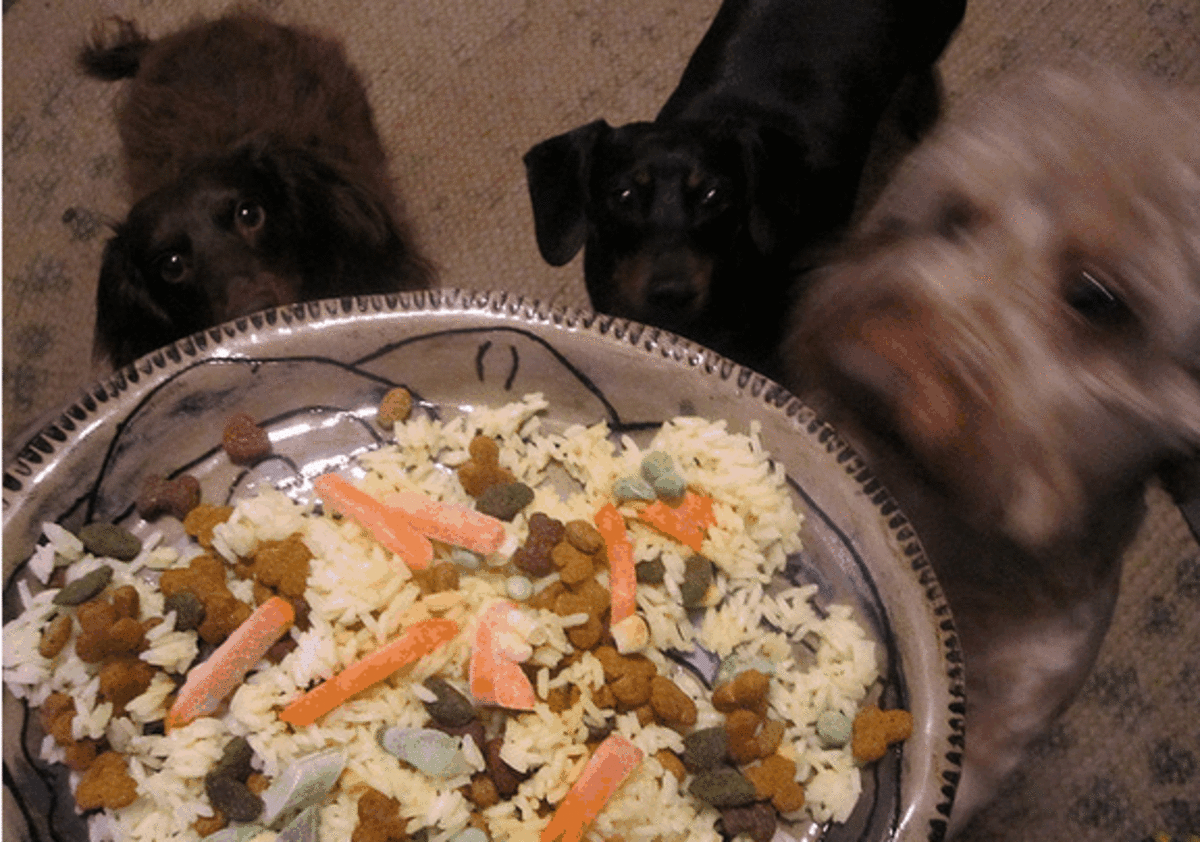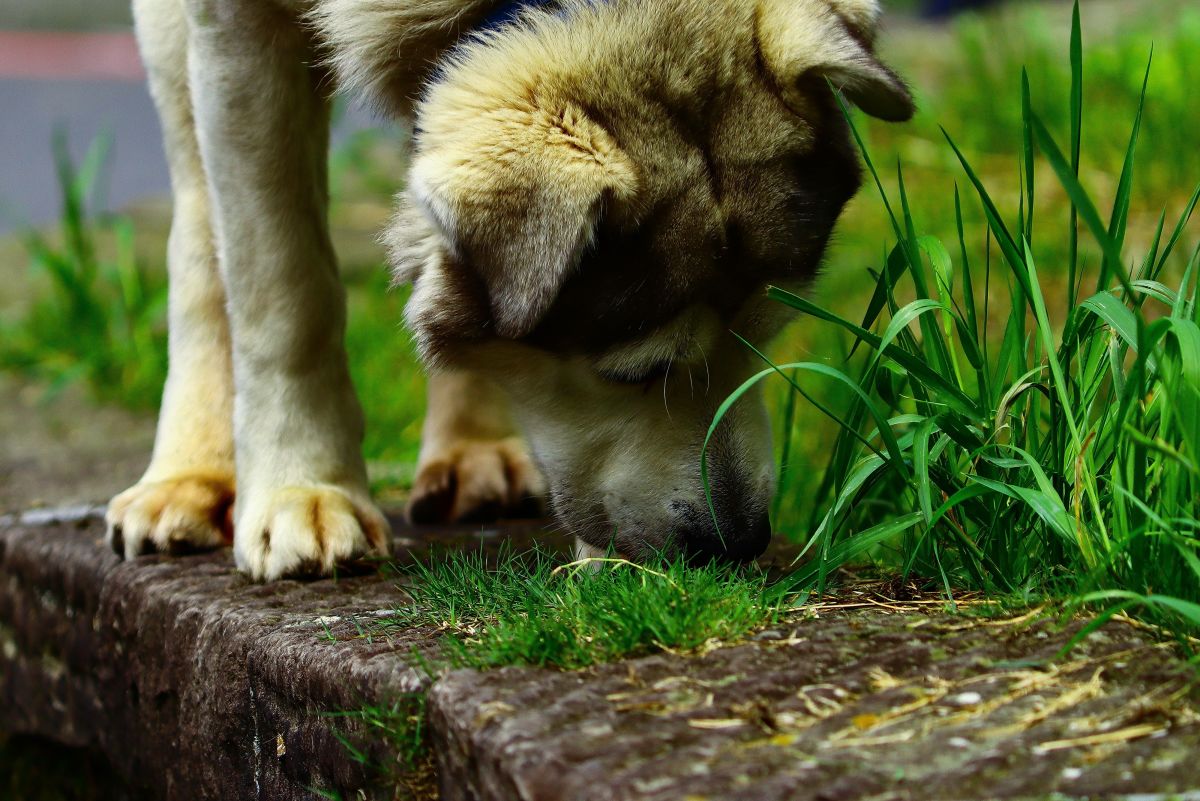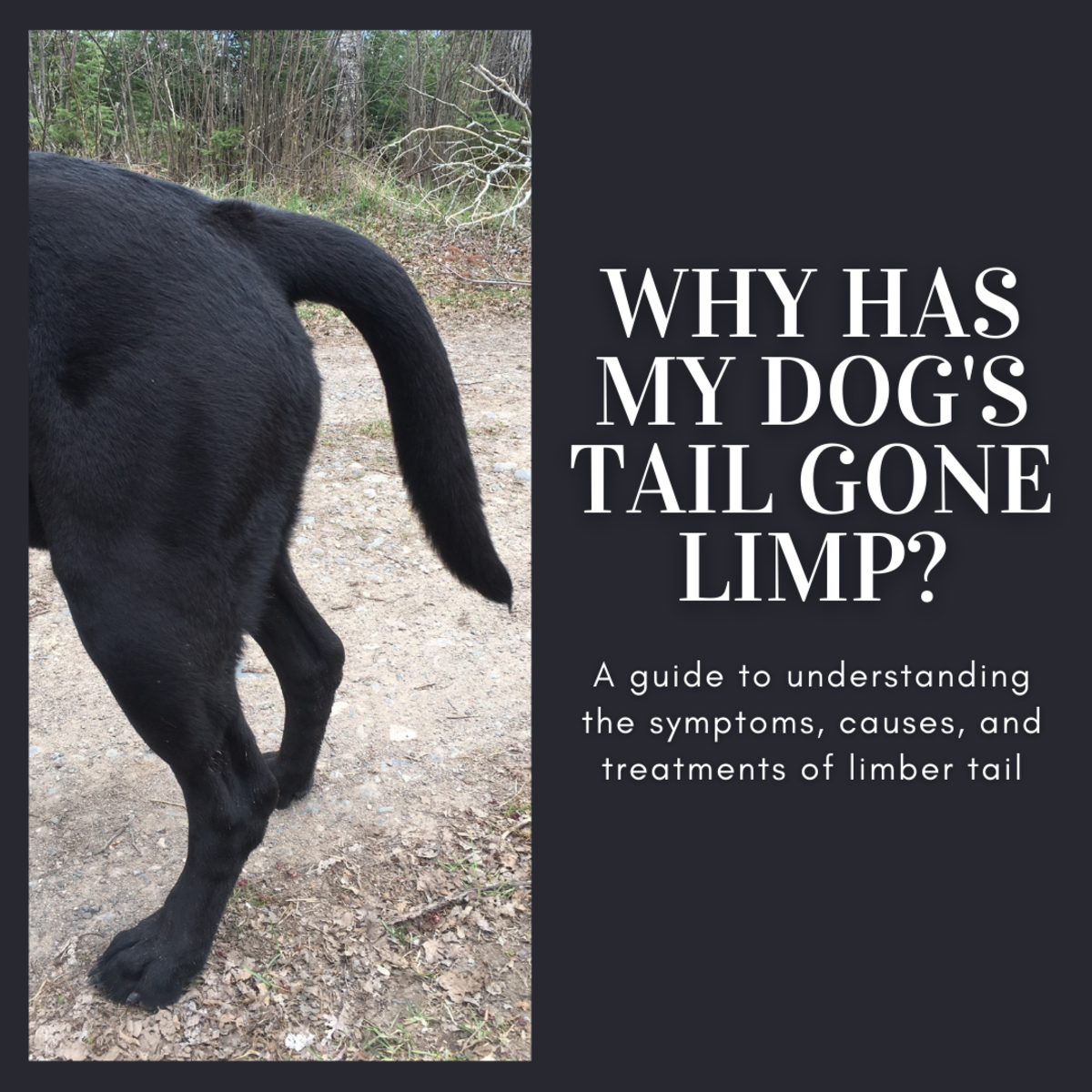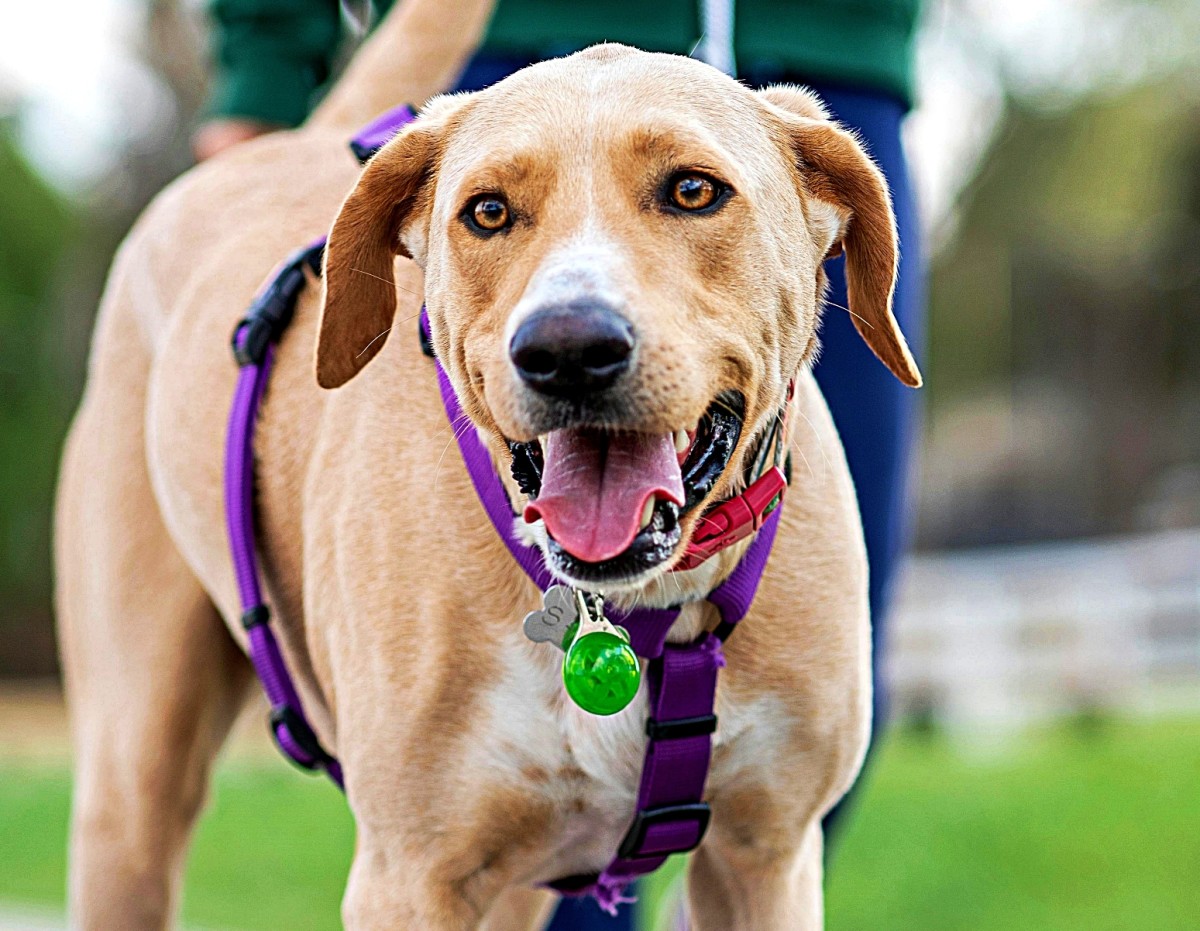Why is My Dog Vomiting? -- Causes of a Pet's Upset Stomach

Why is My Dog Throwing Up?
Wondering, "What caused my dog to throw up?" You're not alone! Upset stomach is among the most common health problems in pets.
There are many potential causes of upset stomach, including the following:
- illness or virus;
- a new food;
- overeating or eating too fast;
- an allergic reaction;
- exposure to toxins;
- over-accumulation of stomach acids;
- ...and more.
The key to treating a dog's vomiting involves identifying the cause. So in this article, we'll explore the various causes of upset stomach, along with some of the symptoms that can result, including dehydration and weight loss.
We'll also discuss when to treat a dog's vomiting at home and when to take the dog to the veterinary clinic for treatment, along with indications that your pet requires emergency care.
The general rule is this: If, after 24 hours, your dog is unable to keep down food and water, you will need to visit the veterinary clinic. After 24 hours, it's likely the pet is suffering from dehydration, which can be deadly.
An animal can die from dehydration within 48 to 72 hours. So your dog will require a subcutaneous (under the skin) fluids injection (the body absorbs the fluids after they're injected under the skin). In more serious cases, your vet may opt to administer IV fluids.
Pet First Aid Kits

Signs of a Medical Emergency in Your Pet
Many cases of vomiting are not serious and many dogs recover quickly, without the need for a visit to the veterinarian.
But in a some cases — like a dog with an allergic reaction or a pet who has eaten something toxic — vomiting can be a sign of a very serious life-or-death situation.
If you observe vomiting in combination with any of the following symptoms, seek immediate medical attention.
- Seizure or Convulsions;
- Bloating
- Loss of Coordination or “Clumsiness”;
- Facial Swelling;
- Difficulty Breathing;
- Loss of Consciousness;
- Vomiting Blood;
- Panting and Restlessness;
- Dehydration and Lack of Urination;
- Projectile Vomiting;
- Drooling or foaming at the mouth;
- White Gums; or
- Distended Abdomen (Particularly if it’s tender when you touch it).
Rush your dog to your vet’s office or, if it’s a night or weekend, the local 24-hour emergency clinic, if you observe vomiting and any of the above-mentioned symptoms. Please don’t delay. Your dog can and will die if you see these symptoms! Minutes may mean the difference between life and death.
If, after 24 hours, a dog is still vomiting, medical attention will be required, as he will likely be suffering from dehydration which can be deadly in the absence of any other health issues.
The Red Cross Pet First Aid Book

Vomiting Due to an Allergic Reaction & Anaphylaxis
Vomiting can occur suddenly and acutely or chronically as the result of an allergic reaction.
An allergic reaction may occur due to:
- a food item, like peanut butter or shellfish;
- an insect bite, including spider or fire ant bites;
- a medication;
- exposure to a chemical such as a flea medication.
Acute and sudden vomiting due to an allergy is a medical emergency.
An allergy can lead to anaphylaxis. Anaphylactic shock can be deadly in a matter of minutes. Other symptoms that suggest an allergic reaction include:
– Pale Gums
– Difficulty Breathing
– Weakness and Sudden Tiredness
– Poor Coordination or “Clumsyness”
– Panting
– Drooling
– Collapse
– Loss of Consciousness
– Seizures or Convulsions
If you observe these symptoms in conjunction with upset stomach, get your dog to the emergency clinic immediately. Call while you’re en route so the vet clinic staff can prepare for your arrival.
For dogs with known allergies, ask your vet to prescribe an EpiPen; this enables the owner to administer an injection if he observes signs of anaphylaxis due to an acute allergic reaction.
Vomiting Due to a Food Allergy or Intolerance
Chronic vomiting issues can result from food sensitivities and intolerances. If this is suspected, your vet may recommend a special diet or an exclusion diet, where specific food items are ruled out one by one.
Duck and potato, fish and potato or lamb and rice dog food formulas are frequently recommended for dogs who may be allergic or intolerant of ingredients that are commonly found in most commercial pet foods.
There are an array of prescription dog foods for sensitive stomachs. Ask your vet if you think your pet requires a special diet.
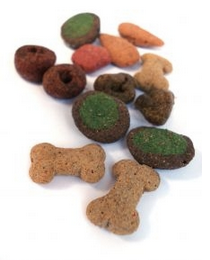
New Foods Can Cause Upset Stomach
A new and unfamiliar food can cause a pet to vomit or experience diarrhea.
Perhaps you fed your dog table scraps or perhaps he invaded the trash can. Or maybe you switched to a new food. All of these can cause vomiting and gastrointestinal upset.
Some animals can tolerate table scraps, whereas other pets have a very sensitive stomach. It’s possible your dog simply cannot tolerate table scraps.
When switching a pet to a new food, always do it gradually! Mix the new food with the old brand and gradually increase the percentage of the new food over the course of 1 to 2 weeks. This will prevent upset stomach due to a new, unfamiliar food item.
Why is My Dog Vomiting Yellow Liquid?
Wondering what causes a dog to vomit yellow fluid or bile? There are two common causes: empty stomach or an over-production of bile.
When the dog’s stomach is empty, the bile and stomach acids can irritate the stomach’s lining. This results in the dog vomiting yellow liquid.
Some pets actually over-produce bile, thereby exacerbating the problem.
The solution? Feed your dog smaller, more frequent meals. Try feeding one additional meal per day. If your pet is still having a problem, try adding an additional meal.
If, after increasing feeding frequency, your dog is still throwing up, contact your vet and ask if your pet can try a medication like Pepcid or Zantac. This will decrease the production of bile and stomach acids.
Remember, never give medication to your dog without consulting your veterinarian first! If your dog is on medication, he may be at risk of a deadly drug interaction. A medication can be deadly to animals with a particular medical condition too, so never give a medication without first consulting your vet.
An examination is very important, as an over-production of bile could be a symptom of a more serious problem involving the liver.
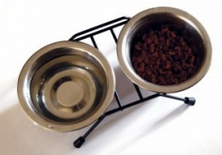
Why is My Dog Throwing Up After Eating?
Some pets may be prone to vomiting right after eating. There are two common causes for this problem:
– The dog is eating too fast; or
– He’s overeating without realizing it.
Problem: My Dog is Eating Too Fast and Vomiting
Many dogs eat quickly. This can occur if they feel threatened by another pet or human, so try feeding in a location that’s free of other pets and humans.
If the pet is still eating quickly, consider purchasing a special dog food bowl with posts located in the dish. He need to eat around the posts, which slows the eating process. Some owners find success by adding two or three large rubber pet balls (larger than what the dog can swallow!) to the bowl. This works for some dogs, whereas others simply remove the balls resume eating at a rapid rate.
If all else fails, split the meal into two parts, served 30 minutes apart.
Problem: My Dog is Eating Too Much
Some dogs overeat without realizing it. This only occurs with dry kibble. Here’s what occurs: The pet eats kibble until he’s full. Once the kibble is in the stomach, his body produces fluids and stomach acids to process the meal. When exposed to fluids, the kibble absorbs it an expands. But the dog ate until he was full, so now, his stomach is beyond full. Vomiting is the result.
To prevent vomiting after meals, serve approximately 1/4 to 1/3 less food. Serve canned food or hydrate the kibble.
To hydrate dry pet food, add hot water so it completely covers the kibble. Over the course of approximately ten minutes, the food will absorb the water and swell. Don’t serve the meal until the kibble has absorbed the water. This way, the food expands before it reaches the dog’s stomach; not after. The pet’s stomach won’t be uncomfortably full, so he won’t vomit after eating.
Also, consider serving smaller, more frequent meals. Dogs are less likely to overeat or eat quickly when they eat frequently, since they won’t be as hungry when mealtime arrives.
Did Your Dog Eat a Toy or Foreign Object?
Is it possible that your dog ate part of a toy, a sock, a rock or another non-food item?
A foreign object can and will cause a dog to vomit repeatedly. Often, the pet cannot hold down water. Some dogs will suddenly drink large quantities of water, which is followed by vomiting, and more drinking (and more vomiting).
In some cases, the pet can bring up the object on his own; other cases require surgical intervention.
Check your dog’s toys to see if any appear to be missing pieces (or missing entirely). Determine whether he may have had an opportunity to eat a clothing item, rocks or another non-food item.
Your pet may require emergency medical attention if the vomiting continues at a rate of several times per hour. If the problem continues for more than 24 hours, it’s time to visit the veterinarian.
Waterproof Seat Covers for a Motion Sick Dog

Vomiting Due to Fear, Anxiety and Motion Sickness
Dogs may vomit due to anxiety, fear and motion sickness.
Some pets, just like humans, are prone to car sickness, whereas others are not.
In addition, if a pet is scolded or yelled at after vomiting in a particular situation or location, it may cause anxiety and fear when a similar situation occurs in the future. For instance, if you yell at your dog every time he throws up in the car, he may vomit before the car even starts moving due to anxiety and anticipation of a bad situation.
Therefore, it's extremely important to that you never punish or yell at your dog for vomiting. Your pet can’t control when and where he vomits any more than you can. How would you feel if someone was yelling at you because you got sick? Not cool. You’re adding insult to injury, making a bad situation worse.
If your dog suffers from anxiety or fear-induced vomiting, ask your veterinarian about starting the pet on an anti-anxiety medication like Clomicalm. Just like humans, some animals suffer from intense and debilitating anxiety and fear. And like humans, many can often benefit from medication.
If your dog vomits in the car on a regular basis, purchase waterproof car seat protectors. (See the accompanying insert.)
When is Upset Stomach a Sign of a More Serious Health Problem?
Just like humans, pets can contract a virus or illness that causes vomiting and upset stomach. Viruses must be allowed to run the course. If the dog is still experiencing problems after 24 hours, you’ll need to bring him to the vet, as dehydration will set in. This can actually exacerbate the problem.
In other cases, a disease or condition may cause chronic vomiting. The list of illnesses and conditions that can cause gastrointestinal upset in dogs is extensive, ranging from megaesophagus to gastroenteritis and gastritis. Most conditions are treatable with a special diet, medication or even surgery.
If your dog loses his lunch on a frequent basis or if there’s a sudden onset and vomiting persists for more than 24 hours, a vet visit is in order. The veterinarian will determine the cause of the dog’s problem by performing an exam and diagnostic tests like x-rays and endoscopies.




